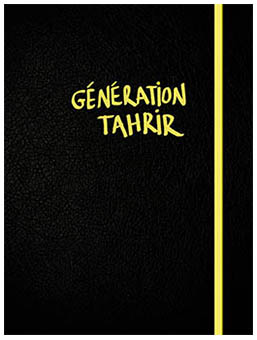Pauline BEUGNIES


This post is also available in:
 French
French
« La jeunesse, étincelle de la révolution égyptienne, star ou anonyme, a disparu des écrans, mais pas seulement. La rue lui a été confisquée. L’avenir du pays réduit au silence, muselé, bâillonné, étouffé. Au pays des pharaons, la répression à l’encontre des jeunes est devenue féroce et arbitraire. Depuis l’arrivée au pouvoir du maréchal Al Sissi, une politique de la terreur s’abat au hasard sur les activistes ou les opposants politiques. Son prédécesseur, le Frère musulman Mohamed Morsi, avait déjà balisé le terrain en matière de restriction des libertés fondamentales. Combien sont-ils à croupir derrière les barreaux sous des chefs d’accusation plus absurdes les uns que les autres ? Combien sont tombés sous les balles ou ont fui l’Égypte ces cinq dernières années ?
Le retour de l’État totalitaire a engendré le découragement, voire le désespoir, et l’on pourrait se demander ce qui a effectivement changé dans le pays après le soulèvement de janvier 2011. Peut-être les jeunes détiennent-ils eux-mêmes la réponse à cette question ? Eux, qui représentent plus d’un quart de la population et se sont longtemps vus comme une minorité impuissante, exclue de la vie active, du mariage comme de la politique. Depuis la mobilisation née à Tahrir, ils sont prêts à contester l’autorité de l’État comme celle du père, à remettre en cause le carcan des relations sociales traditionnelles et à s’affirmer par le biais de la culture, de l’activisme, ou simplement dans leur vie quotidienne, par un état d’esprit différent de celui des générations précédentes.
Mon projet dresse le portrait intime d’une génération émergente qui a fait le choix de l’émancipation, contre la tyrannie du patriarcat. »
TAHRIR GENERATION
In January 2011, Egypt’s youth launched a revolt, unseating Hosni Moubarak from power after 30 years. Five years later came disaster. An omnipotent military State is once again in power and the repression of political opponents is murderous. The photographs of Pauline Beugnies, the cartoons of Ammar Abo Bakr, and the words of journalist Ahmed Nagy, together form a picture of a generation driving the hopes of the Arab world.
"Egypt’s youth, the spark behind the country’s revolution, including both familiar faces and unknowns, have disappeared from screens – and that’s not all: they are nowhere to be seen on the streets either. The country’s future has been reduced to silence, muzzled, gagged, stifled. In the land of the pharaohs, repression against young people has become fierce and arbitrary. Since Field Marshal El Sissi came to power, a policy of terror has been rolled out indiscriminately, hitting activists and political opponents hard. His predecessor, Muslim Brotherhood representative Mohamed Morsi, had already done the groundwork when it came to restricting basic freedoms. Now, how many people are behind bars facing increasing absurd accusations? How many have fallen under bullets or fled from Egypt over the last five years?
The return to a totalitarian state has led to discouragement and indeed despair, and we are left wondering what has actually changed in the country since the January 2011 uprising. Maybe these young people are those ones who can answer that question? They account for more than a quarter of the population yet have long been viewed as a powerless minority, marginalised from work, family life and politics. Since the mobilisation that began in Tahrir, they are willing to contest the authority of the State and of their fathers, and to question the stranglehold of traditional social relations, ready to fight through culture and activism, or simply in their day-to-day life with a mindset that differs from that of the previous generations.
My project is an intimate portrait of an emerging generation that is opting for emancipation over the tyranny of the patriarchy."
Pauline Beugnies


